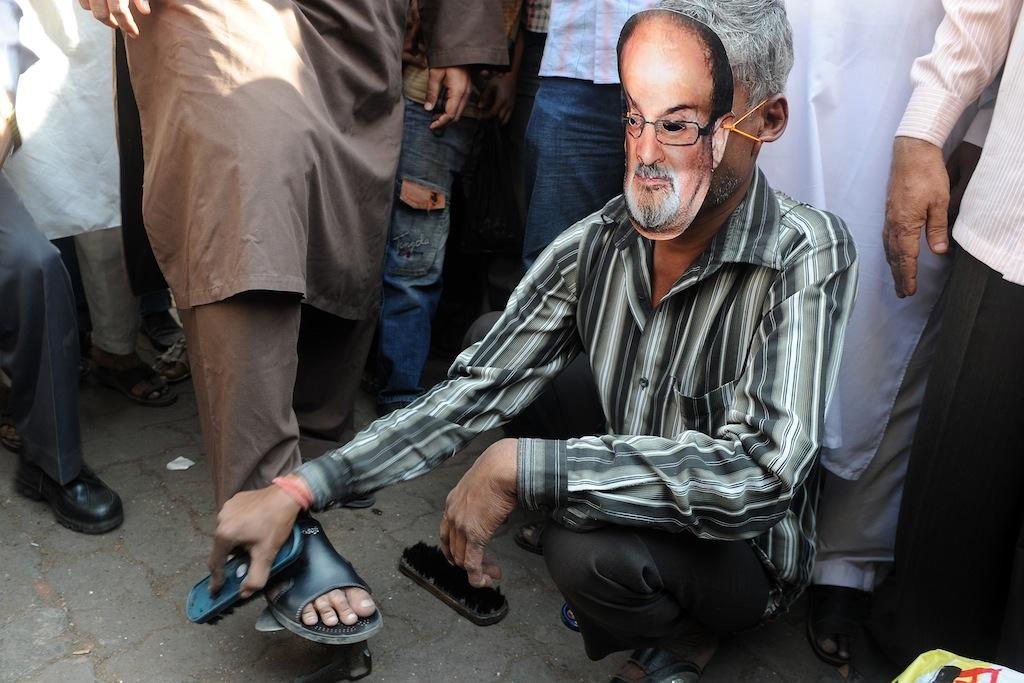Salman Rushdie: India won’t ban him from his homeland
A cobbler wearing a mask of controversial British author Salman Rushdie polishes shoes outside a mosque during a protest by an Islamic organisation in Mumbai on January 11, 2011. Rushdie has dismissed demands by an influential Islamic seminary in India that he should be banned from entering the country to attend a literature festival later this month. Rushdie, who was threatened with death in a ‘fatwa’ order from Iran over his 1988 novel ‘The Satanic Verses’, is due to speak in the city of Jaipur alongside fellow writers such as Lionel Shriver and Richard Dawkins.
Salman Rushdie won't face a travel ban from India, after all.
The Indian government said Tuesday it will not cave to demands from an influential Muslim order called the Darul Uloom Deoband to prevent the Mumbai-born author from traveling to India for the Jaipur Literary Festival in Rajasthan later this month, according to the Hindustan Times.
Rushdie, who earned a death sentence from Iranian clerics for allegedly insulting the Prophet Muhammad in his 1988 novel, "The Satanic Verses," is both enormously popular and selectively controversial in India — where the novel was banned to appease Muslims who took offense.
However, as a holder of a Person of Indian Origin (PIO) card, the author does not need a visa or government permission to travel to India.
More from GlobalPost: Salman Rushdie travel ban sought in India
Deoband's move to try to bar him was a transparent effort to move Muslim issues — albeit ancillary and irrelevant ones — to the forefront amid elections in Uttar Pradesh, a pivotal state for deciding the direction that the wind is blowing in Indian national politics.
In the past, the Congress Party has on many occasions granted undue sway to conservative Muslim groups in the hope of winning the Muslim vote, which has given groups like Deoband power that is perhaps disproportionate to their real influence among the common people.
This go-round, the Congress has proposed a separate job quota for Muslims instead, which could be less damaging, even if it does aggravate other groups lobbying for similar sops.
So are we in for another round of “Muslim appeasement,” to use the phrase of choice of the Hindu nationalist Bharatiya Janata Party, archenemy of the Congress?
Not according to FirstPost, which offers the full background of the Muslim appeasement controversy here:
The manifest attempt to whip up manufactured Muslim rage may yet fall flat on its face for the reason that 2012 isn’t quite 1988. Even the Congress, which has perfected the art of pandering to minority sensibilities and continues to feed off the politics of victimization, is wary of heeding the appeal to disallow Rushdie from visiting India.
By holding the line, the government suggests that we're not, which is a good thing, if only because the tug of war over “appeasement” and “hurting Hindu sentiments” has in the past spiraled into a politics of violence.
Let's hope, as FirstPost puts it, that 2012 is not 1998.
